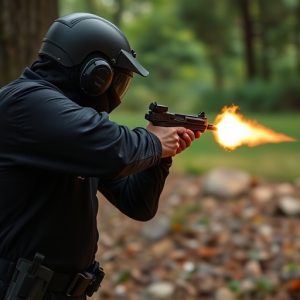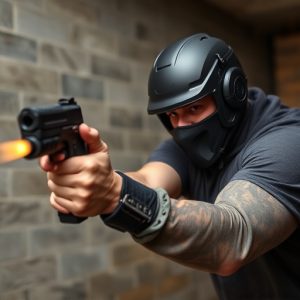Civilian Taser Ownership: State Laws, Requirements, and Electrical Specifications
The ownership and usage of stun guns (tasers) in the US are governed by a patchwork of state laws, v…….
The ownership and usage of stun guns (tasers) in the US are governed by a patchwork of state laws, varying widely from minimal licensing requirements to extensive regulations. These rules cover age restrictions, background checks, training, carry permits, and specific electrical specifications like voltage, current output, and charging requirements. States like Texas and Arizona have lenient rules while New York and California demand stricter adherence. Stun guns must meet legal standards of 500,000 volts (V) and 2 ampères (A) for non-permitted ownership. Obtaining a taser involves navigating permits, licenses, registration, and specific voltage parameters to ensure legal carry in permitted locations and situations. Responsible citizens can safely navigate these regulations while advocating for sensible policies that balance personal protection and public safety.
“Uncovering the legal landscape of civilian taser ownership: A comprehensive guide to state laws and regulations. In today’s world, understanding the rights and restrictions surrounding stun guns is essential for responsible citizens. This article navigates the intricate web of laws, offering a state-by-state analysis and delving into key aspects like electrical specifications and legal acquisition processes. From permits to case studies, we explore what it takes to legally own and carry a taser, ensuring folks are empowered with knowledge in this dynamic environment.”
- Understanding Taser Ownership: Legal Framework and Regulations
- State-by-State Analysis of Civilian Taser Ownership Requirements
- Electrical Specifications: What Makes a Taser Legal?
- Obtaining a Taser: Permits, Licenses, and Registration
- Restrictions and Prohibitions: Where Can You Legally Carry a Stun Gun?
- Case Studies: Successful Advocacy for Civilian Taser Rights
Understanding Taser Ownership: Legal Framework and Regulations
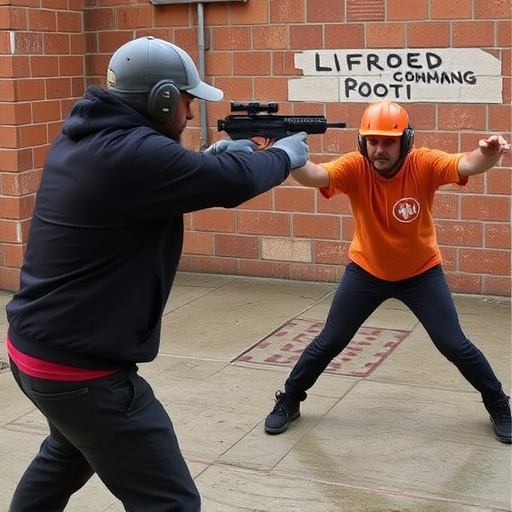
Understanding Taser ownership involves navigating a complex web of state laws and regulations, which vary significantly across the US. In general, purchasing a stun gun or taser requires adherence to strict guidelines ensuring responsible handling and use. These regulations often include age restrictions, background checks, and training requirements to ensure citizens are educated on safe deployment practices.
The legal framework surrounding stun guns encompasses not just ownership but also the specific electrical specifications allowed. State laws dictate voltage levels, current outputs, and charging requirements, aiming to strike a balance between personal protection and public safety. These regulations are designed to prevent misuse while allowing law-abiding citizens to protect themselves in various situations, reflecting a delicate interplay of individual rights and community well-being.
State-by-State Analysis of Civilian Taser Ownership Requirements
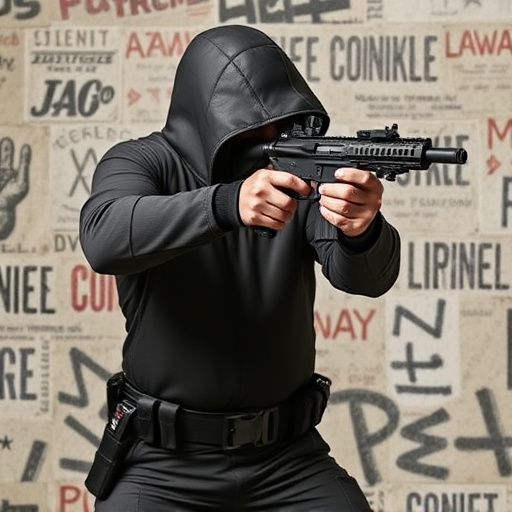
In the United States, the regulations surrounding civilian ownership of stun guns, or tasers, vary significantly from state to state, reflecting a complex interplay between public safety and individual liberties. Each state has its own set of laws dictating who can possess, carry, and use these devices, with varying requirements that range from strict licensing to near unrestricted access. Understanding these regulations is crucial for those interested in acquiring a stun gun for personal protection.
A state-by-state analysis reveals a spectrum of restrictions based on factors like age, background checks, training, and open or concealed carry permits. Some states, like Texas and Arizona, have relatively lenient rules, allowing qualified individuals to own tasers without extensive licensing procedures. In contrast, states like New York and California have stringent requirements, often demanding detailed training, certifications, and thorough background checks before granting permission to purchase and possess stun guns with electrical specifications that vary in power and delivery methods. This diversity underscores the fragmented nature of gun control laws across America.
Electrical Specifications: What Makes a Taser Legal?
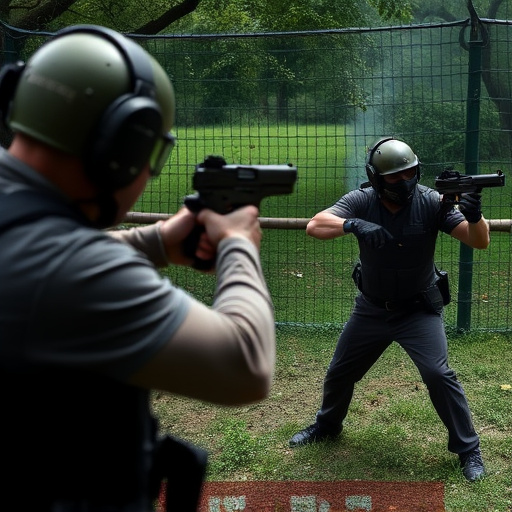
The legal definition of a stun gun or Taser is closely tied to its electrical specifications, which vary by state. For a device to be classified as a stun gun and be legally owned without a permit in many US states, it must emit an electric current with a maximum output of 500,000 volts (V) and deliver at least 2 ampères (A) of electrical energy upon contact. These specifications are designed to ensure the device is powerful enough to incapacitate a target temporarily without causing permanent harm or severe injuries.
States set these standards to balance personal protection with public safety. Lower voltage devices might not be effective in deterring an attacker, while higher voltages pose a greater risk of serious injury if used improperly. As such, stun guns often come equipped with safety features like a trigger lock and automatic shut-off mechanisms to prevent accidental discharge. Adhering to these electrical specifications ensures that stun gun owners can protect themselves legally while mitigating potential risks.
Obtaining a Taser: Permits, Licenses, and Registration
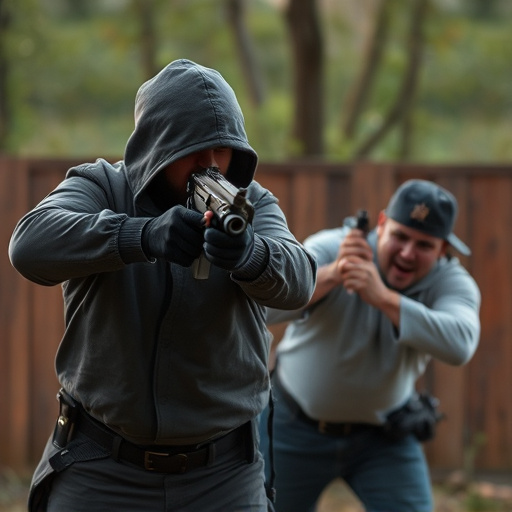
Obtaining a Taser involves navigating a series of state laws and regulations that vary widely across the US. Before considering purchasing a stun gun, it’s crucial to understand the specific requirements in your area. Many states require individuals to obtain a permit or license to legally carry a stun gun, similar to firearms regulations. These permits often come with stringent criteria related to age, background checks, training, and even waiting periods. Some states differentiate between stun guns and tasers based on electrical specifications, defining their power output and voltage levels.
Registration is another common requirement, where owners must register their stun guns with local law enforcement agencies. This process typically involves filling out specific forms, providing identification, and paying associated fees. Staying informed about these legal mandates is essential to ensure compliance and avoid any potential legal complications.
Restrictions and Prohibitions: Where Can You Legally Carry a Stun Gun?
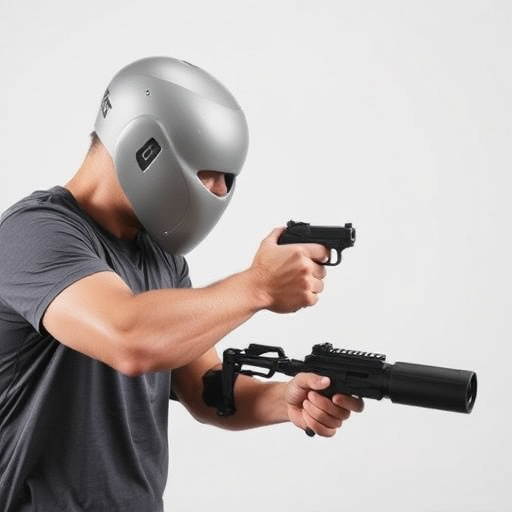
In many jurisdictions, the legal status of stun guns, or Tasers as they are commonly known, is subject to strict regulations and prohibitions. While some states allow civilian ownership with certain restrictions, others have stringent rules regarding their use and carry. One key aspect of these restrictions involves the electrical specifications of stun devices. Laws often dictate specific voltage, current, and pulse width parameters that stun guns must adhere to, ensuring they are non-lethal and designed for personal protection rather than deadly force.
The legal carrying of a stun gun is typically limited to certain locations and situations. In general, it is prohibited in places like schools, daycares, airports, and government buildings. Some states also restrict their use on public transportation or in specific zones deemed high-risk for violence. Additionally, individuals must possess a valid reason for carrying a stun device, such as personal protection or professional duty, as merely owning one may not be sufficient to legalize its carry.
Case Studies: Successful Advocacy for Civilian Taser Rights
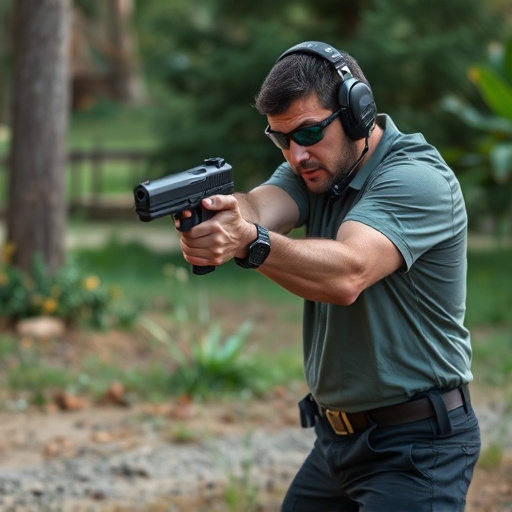
In recent years, several successful advocacy efforts have highlighted the benefits and necessity of allowing civilian ownership of tasers. These case studies demonstrate that responsible citizens can navigate the complexities of stun gun electrical specifications to ensure their safety and protect others. For instance, in states where robust background checks and training programs have been implemented, there’s a notable decrease in misuse incidents while maintaining public safety.
Advocacy groups have also successfully argued that tasers act as powerful deterrents against crime, providing individuals with an alternative option to lethal force when facing dangerous situations. These victories are a testament to the fact that sensible regulations can enable responsible ownership without compromising public safety. By studying these successful advocacy cases, policymakers can better understand the potential of stun guns and create laws that reflect the needs of both law-abiding citizens and public security.
Understanding the legal landscape surrounding civilian taser ownership is crucial in navigating state laws and ensuring compliance. This article has provided a comprehensive overview, from the basic regulations to specific requirements across different states. When considering owning a taser, it’s essential to delve into the electrical specifications that define legality, along with permits, licenses, and registration procedures. By staying informed about restrictions and case studies of successful advocacy, civilians can make informed decisions regarding stun gun ownership while adhering to local laws.
